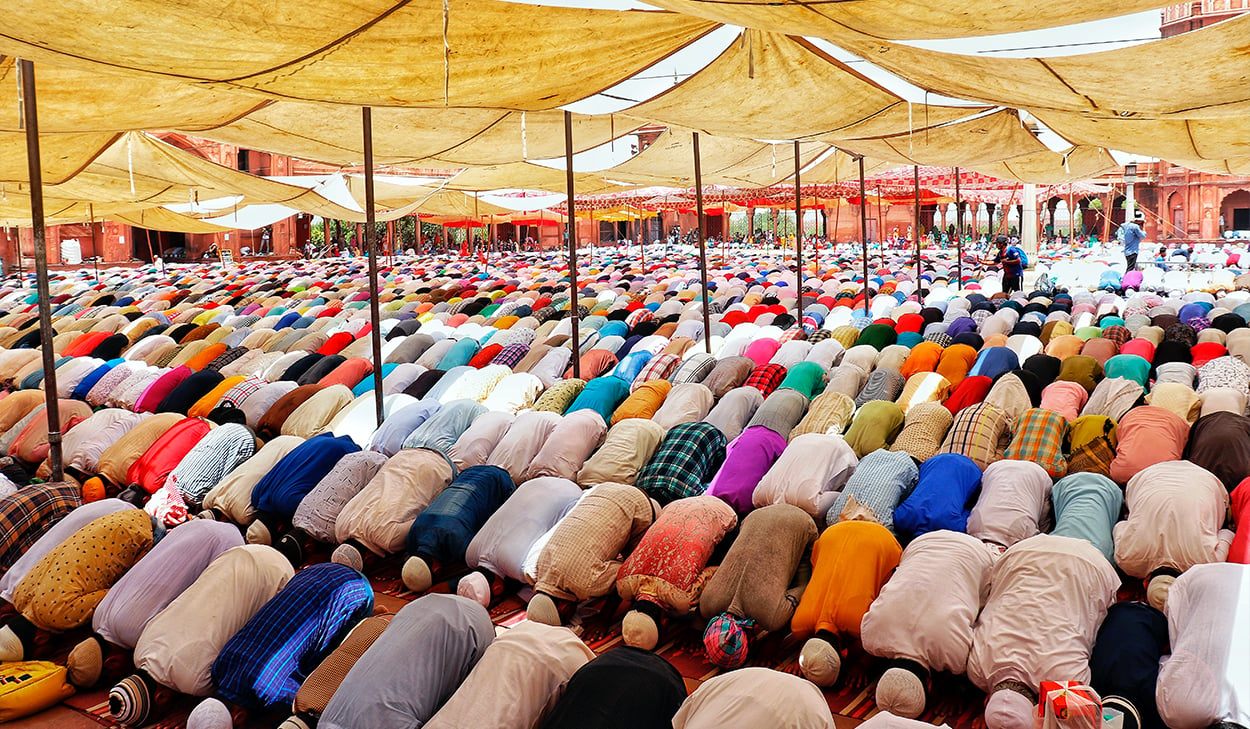
According to the Islamic calendar, Eid-Ul-Fitr takes place at the end of Ramadan, the Muslim holy month of fasting. There is not a set date every year for Eid-Ul-Fitr to take place due to the Islamic calendar being a lunar calendar; however, this event marks the first three days of the tenth month in their calendar, Shawwal.
Eid-Ul-Fitr
“Eid” translated means “the festival of breaking the fast,” referring to the fasting that took place every day from dawn to sunset during Ramadan. Fasting, or Sawm, is one part of the five pillars of Islam, which are the devotional duties for a Muslim. Eid-Ul-Fitr, also known as Eid-Al-Fitr, is an opportunity to celebrate a successful Ramadan by spending time in the reflection of one’s faith in the presence of friends and family. The self-control and dedication to abstain for a month allow Muslims to celebrate and enjoy all Allah has provided. Muslims celebrate Eid-Ul-Fitr differently globally, but time is arranged to spend with friends and family.
At dawn, Muslims perform the first of their daily prayers (Salat al-fajr) before performing Ghusl, a ritualistic full-body cleansing. Families put on their finest or newly purchased clothes to meet community members at a local mosque. A charity donation to any needs in the community, known as Zakat ul-Fitr or Fitrana, is required before participation in a communal Eid prayer. The customary greeting is “Eid Mubarak”—which means “Blessed Eid”—or “Eid sa’id”—meaning “Happy Eid.” The greetings are meant to create feelings of good will among everyone. Out of a celebratory spirit, Muslims commonly hug everyone they meet, give gifts to loved ones, and visit graves of their relatives. Eid-Ul-Fitr is also known as the “Sweet Eid” or “The Sugar Feast” because of the extravagant desserts consumed as a part of a large meal celebration.
Gospel Opportunity
Islam, like Christianity, is a monotheistic religion and has Abrahamic roots that allow Muslims to consider the first five books of the Bible as holy books. Beyond this, there are many differences between the two religions allowing for discussion about why things are similar and different. Jesus needs to be seen as more than just a prophet, being inseparable from God (John 10:30) and having authority to save anyone who believes in Him (Luke 9:35). After his baptism, Jesus fasted for 40 days in the wilderness and was tempted by the devil. Since Jesus was fully God and fully human, His flesh was weakened by hunger, but He used Scripture to fight the temptations.
“‘Away from me, Satan! For it is written: “Worship the Lord your God, and serve him only.”’” -Mark 4:10
Jesus sets the standard of how a time of fasting draws you closer to God and prepares you for His purposes. Just as Jesus didn’t rely on His flesh to maintain obedience to His fast, we must allow the Holy Spirit to direct our lives. If you get invited to spend time with their friends and family, showing up and respecting their dedication during Ramadan shows excellent care. Since there is already a familiarity with some Scripture (the Pentateuch), it is essential to use that as a bridge and clarify what specific terms mean to you, additionally any differences your Muslim friends may have in understanding the Word.